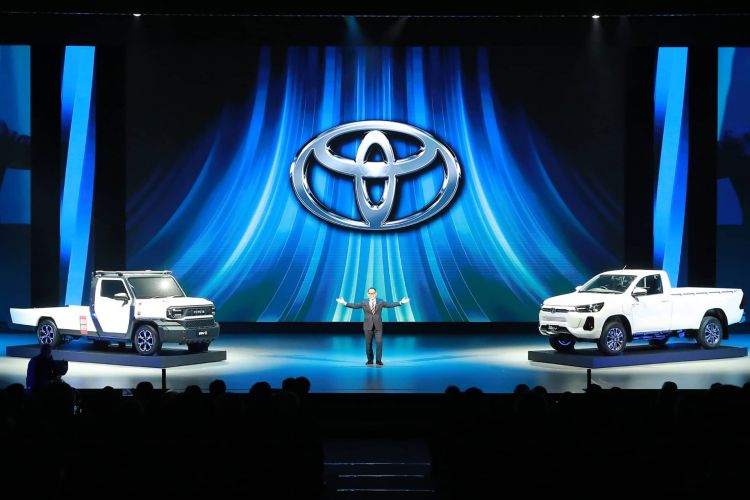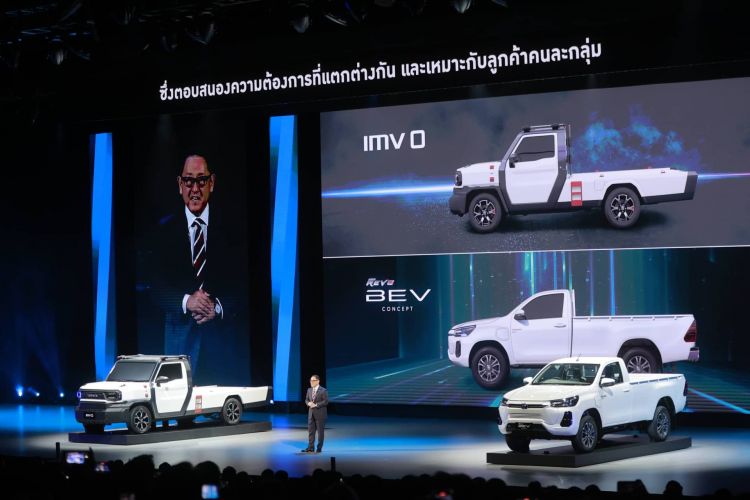A year ago, Toyota presented a wide group of fully electric prototypes: models that covered almost all segments, including the pick-up. At that time there was only one unit, which looked more like the Toyota Tacoma than the Toyota Hilux. Twelve months later, it has arrived a concept named Toyota Hilux Revo: is it the future electric version of the Japanese truck?
Toyota has shown the Toyota Hilux Revo BEV Concept in Thailand, in an event organized to mark the sixtieth anniversary of the brand in that country. As its own name indicates, it is a prototype with which the brand intends to show how the fully electric version of this pick-up could be, one of the best sellers in the world. For now, We only have a few official images… and many hypotheses.
The changes
The Toyota Hilux Revo is based on the current generation of the Toyota Hilux, which is the eighth, and the differences between the two are minimal. The most notable are focused on the front: the logo is the blue one that the brand uses for its electrified models, the grill is practically closed to reduce the coefficient of penetration thinking about aerodynamics and the bumper has new side moldings (where the fog lights would go).
In profile, the tires appear to be the same size as those of the traditional Toyota Hilux (17 inches) and on the left front wing we discover the charging socket. In the underbody of the car, the batteries can be seen. There is no data about them and neither about the mechanical scheme: the only thing that Toyota has confirmed is that the development has been carried out in Thailand.
A couple of years
Akio Toyoda, president of Toyota, also suggested that the series production version of the electric Toyota Hilux could arrive from 2024. However, we also do not know if it will be destined for a single market or if it will be available globally.
This is not the only vision for the future of Toyota pick-ups. At the beginning of the month, they showed the Toyota Hilux FCEV: a hydrogen-powered prototype with which the brand wants to explore an alternative path to electric versions.
There aren’t many details either. about it, but it is known that, when carrying out the adaptation, they have not touched the cargo area: the fuel cell is located under the front hood, the three 700-bar hydrogen tanks are under the passenger compartment, the electric motor is located on the rear axle and the battery, behind the rear seats.





